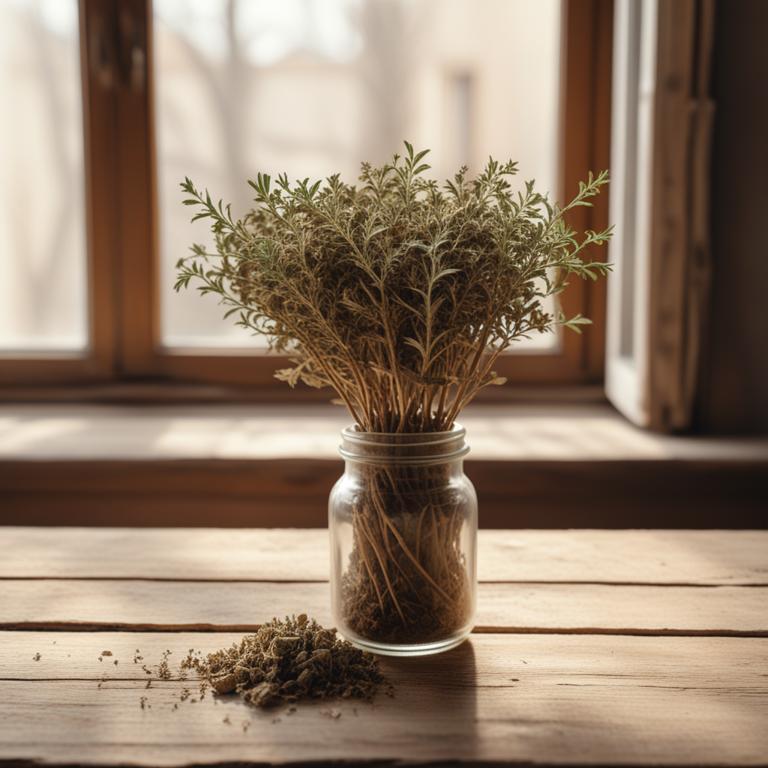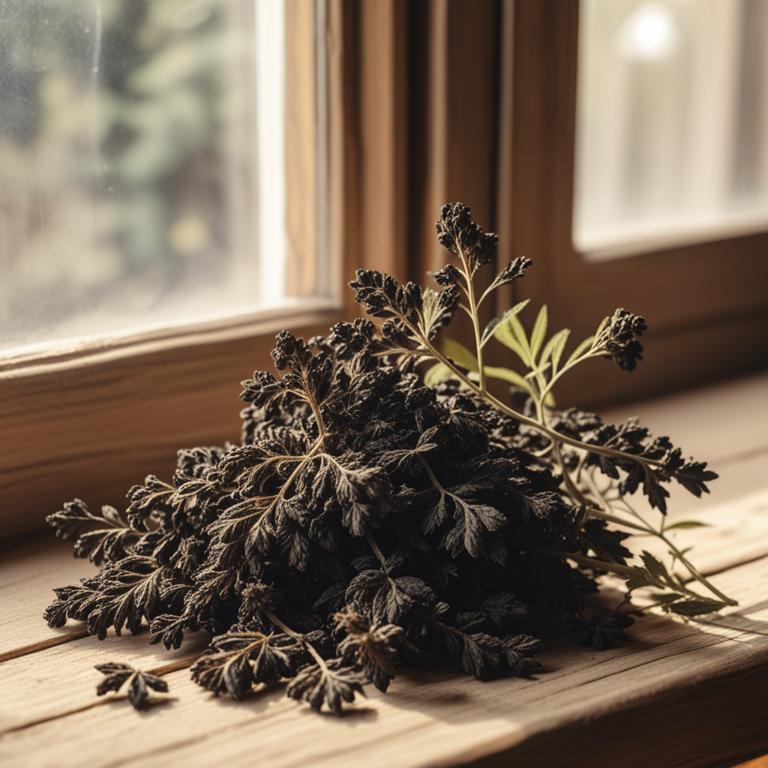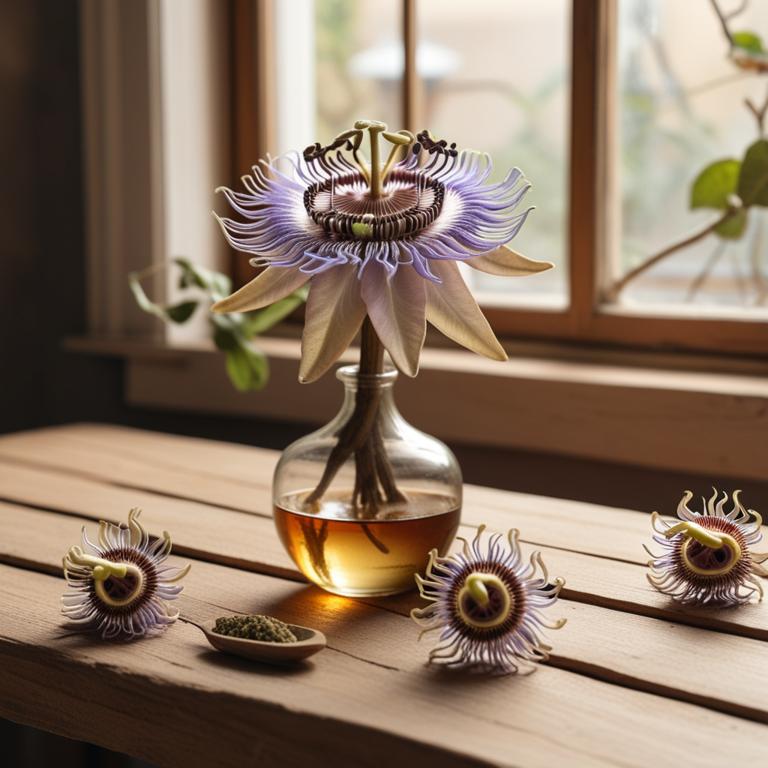Updated: Dec 1, 2024
Bronchitis: The Causes, Medicinal Herbs, and Homeopathic Preparations
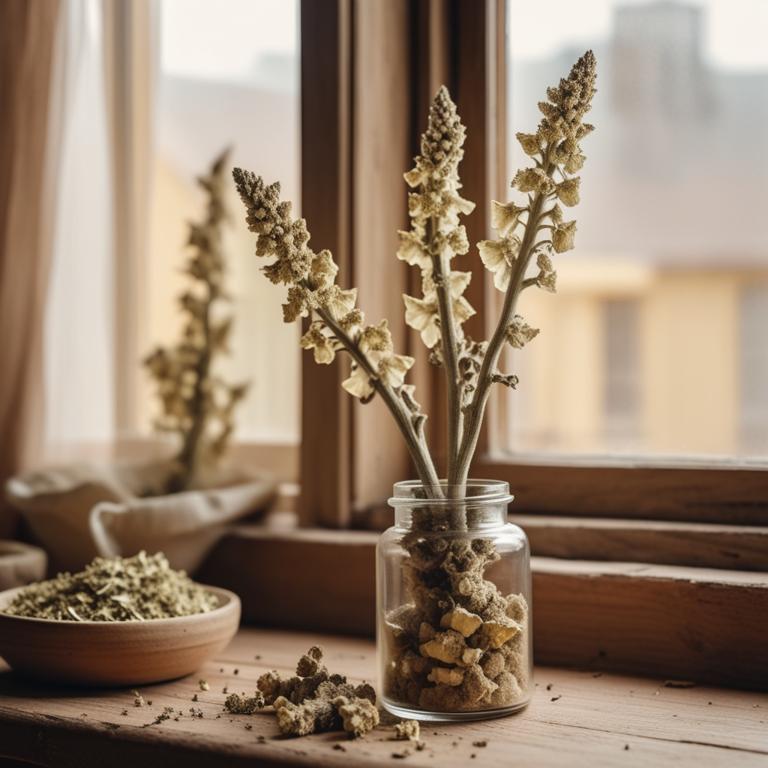
Bronchitis is a common respiratory condition that causes inflammation and irritation in the airways, making it hard to breathe.
When you have bronchitis, you may experience a persistent cough, wheezing, and shortness of breath, which can greatly affect your daily life. You may find it hard to perform simple tasks, and even everyday activities like walking or talking can become exhausting. Bronchitis is often caused by a viral or bacterial infection, but it can also be triggered by smoking, air pollution, and exposure to chemicals. Fortunately, there are natural remedies that can help soothe and heal the inflamed airways.
Herbs like thyme, eucalyptus, and licorice root have anti-inflammatory and expectorant properties that can help clear out mucus and reduce coughing. These herbs can be prepared as teas, tinctures, or infusions, making them easy to incorporate into your daily routine. Drinking thyme tea, for example, can help loosen and clear out mucus, while eucalyptus oil can be added to a humidifier to help ease congestion. Licorice root tea can also help soothe and calm the airways, making it easier to breathe.
By using these herbal remedies, you can find relief from bronchitis symptoms and get back to your normal activities.
Table of Contents
What factors contribute to bronchitis?
The main causes of bronchitis are mainly related to the environment and our lifestyle.
One of the main causes is tobacco smoke. When you smoke, or are around smokers, the chemicals in the smoke irritate the lining of your airways, leading to inflammation and infection. Another cause is air pollution, which can be found in cities with high levels of traffic and industrial activity. The pollutants in the air can cause your airways to become inflamed and make it harder to breathe. Influenza and pneumonia are also major causes of bronchitis.
Influenza, or the flu, is a viral infection that can spread quickly and cause your airways to become inflamed. Pneumonia is an infection in the lungs that can also cause inflammation in the airways, leading to bronchitis. Both of these infections can be serious and need medical attention. Viral infections, such as the common cold, can also cause bronchitis. When a virus infects the lining of the airways, it can cause inflammation and lead to bronchitis.
These infections are often spread through the air when someone coughs or sneezes, or through close contact with someone who is sick.
What benefits do herbs offer for the treatment of bronchitis?
Using herbs for bronchitis can be very beneficial.
They can help to loosen and clear out mucus from the lungs, making it easier to breathe. Some herbs have anti-inflammatory properties, which can reduce swelling and pain in the chest and throat. Others have antibacterial properties, which can help to fight off infections and prevent further illness.
Herbs can also help to soothe and calm the respiratory system, reducing coughing and wheezing. Additionally, many herbs are natural expectorants, helping to bring up mucus and phlegm from the lungs, making it easier to expel. They can also help to calm the mind and body, reducing stress and promoting a good night's sleep.
By incorporating herbs into your treatment plan, you may find that your symptoms improve and you recover more quickly.
What are the key medicinal herbs for bronchitis management?

Herbs can be a great help when it comes to bronchitis, an inflammation of the airways that makes breathing difficult.
Eucalyptus globulus is a good choice, as its oil helps ease congestion and open up airways. This makes it easier to breathe and cough up mucus. Echinacea purpurea is another herb that can help, as it boosts the immune system and fights off infections that can cause bronchitis.
Thymus vulgaris, or thyme, has antiseptic properties that help kill bacteria and reduce inflammation in the airways. Glycyrrhiza glabra, or licorice root, has anti-inflammatory properties that can help soothe irritated airways and make it easier to breathe. Rosmarinus officinalis, or rosemary, is also a good choice, as it helps thin mucus and make it easier to cough up.
All these herbs work together to help alleviate the symptoms of bronchitis, making it easier to breathe and feel better.
What are the most frequently used herbal remedies for bronchitis?
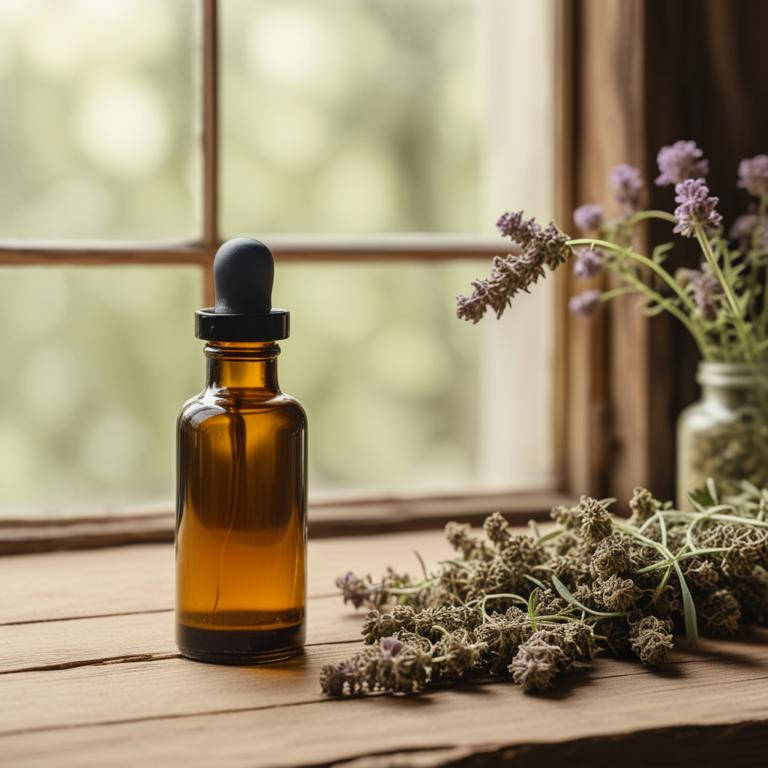
Herbal preparations can be a great way to help manage bronchitis symptoms.
A decoction, which is made by boiling herbs in water, can be particularly effective. Herbs like thyme and eucalyptus are commonly used to make decoctions because they have natural decongestant and anti-inflammatory properties that can help ease congestion and reduce coughing. On the other hand, infusions are great for soothing the throat and calming the body. A warm infusion of herbs like slippery elm and licorice root can help reduce inflammation and irritation in the throat, making it easier to swallow and breathe. Infusions are usually made by steeping herbs in hot water, similar to making tea. Tinctures, which are concentrated liquid extracts of herbs, can also be very helpful.
They can be taken sublingually (under the tongue) or added to water or tea. Tinctures of herbs like ginger and peppermint can help reduce inflammation and ease nausea, which are common symptoms of bronchitis. Capsules are another convenient way to take herbal preparations. They contain dried herbs that have been ground into a powder and are easy to swallow. Capsules can be filled with herbs like elecampane and mullein, which are known for their expectorant properties, helping to bring up mucus and ease congestion. Finally, salves can be applied topically to the chest and throat to help ease congestion and inflammation. Salves made with herbs like eucalyptus and menthol can help loosen mucus and reduce coughing.
They can be particularly helpful at night to help you sleep better.
Additional Resources:
What herbs should you avoid using if you have bronchitis?
If you have bronchitis, it's best to be cautious with certain herbs that might irritate your already sensitive airways.
For instance, Hyptis suaveolens, also known as the sweet hyptis, can have a decongestant effect, but it might also stimulate your lungs and make your bronchitis symptoms worse. Similarly, Hyssopus officinalis, or hyssop, is often used to soothe respiratory issues, but its strong, pungent flavor can be overwhelming and even trigger coughing fits in people with bronchitis.
Silybum marianum, commonly known as milk thistle, is more commonly used to treat liver problems, but it's not the best choice for bronchitis as it can cause stomach upset, which can be a challenge when you're already struggling to breathe. Zingiber officinale, or ginger, is usually fine in small amounts, but excessive consumption can irritate your digestive system and make your bronchitis symptoms worse.
Finally, Piper nigrum, or black pepper, contains a compound that can relax your airways, but in large quantities, it can also dry out your mucus and make it harder to cough up, which is not ideal when you're trying to clear out your lungs.
FAQ
Are there any specific herbs that can prevent bronchitis?
Thyme and eucalyptus are herbs that may help prevent bronchitis.
Thyme has antibacterial properties that can fight off infections, while eucalyptus has decongestant properties that can help clear out mucus.
Drinking tea made from these herbs may help soothe the respiratory system and reduce the risk of bronchitis.
Is it safe to use herbal remedies for bronchitis during pregnancy?
Using herbal remedies for bronchitis during pregnancy can be a concern.
Some herbs, like ginger and eucalyptus, might help ease symptoms. However, others, like foxglove and comfrey, can cause problems for the baby or the mother.
It's best to be cautious and talk to a trusted source before trying any herbal remedies.
Are there any herbs that can reduce the frequency of bronchitis?
Ginger has anti-inflammatory properties that may help reduce the frequency of bronchitis.
Thyme's antimicrobial properties can also help fight off infections that lead to bronchitis. Echinacea is known to boost the immune system, which can help prevent bronchitis attacks.
These herbs may help alleviate symptoms and reduce the severity of bronchitis episodes.
Related Articles
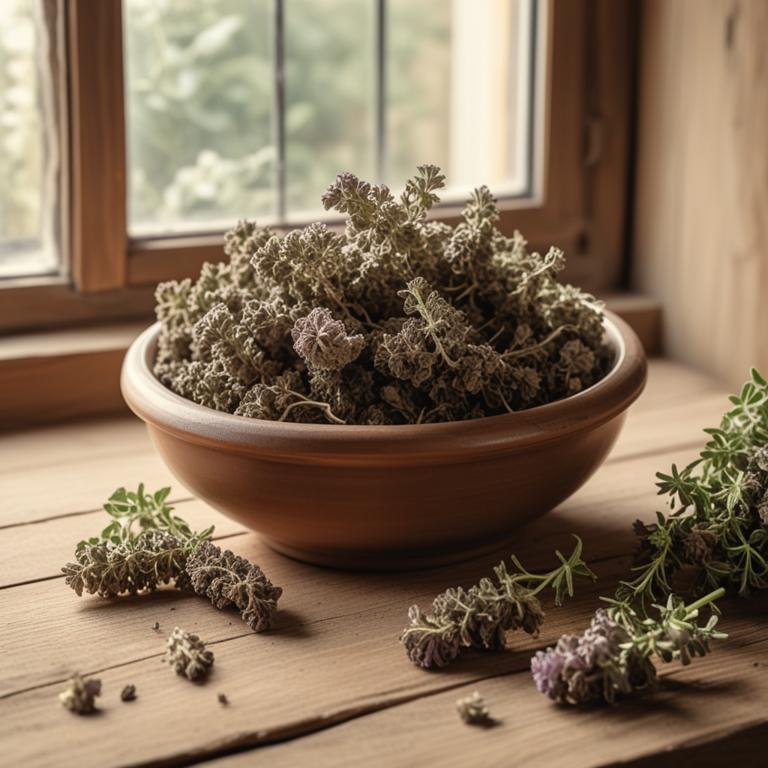
Mucus in Throat - Understanding the Causes and Herbal Cures
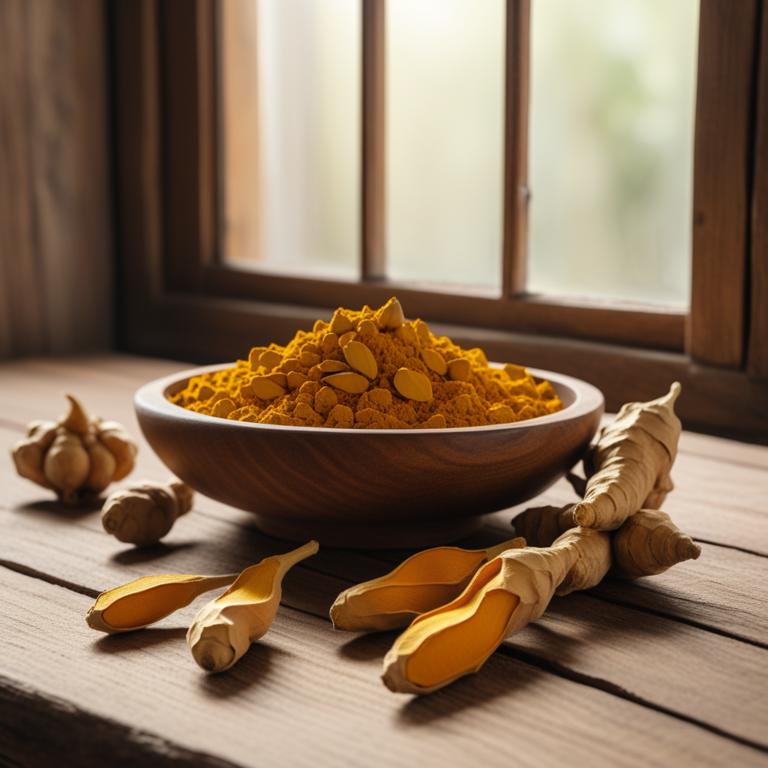
Emphysema Causes, Symptoms, and Herbal Relief Options
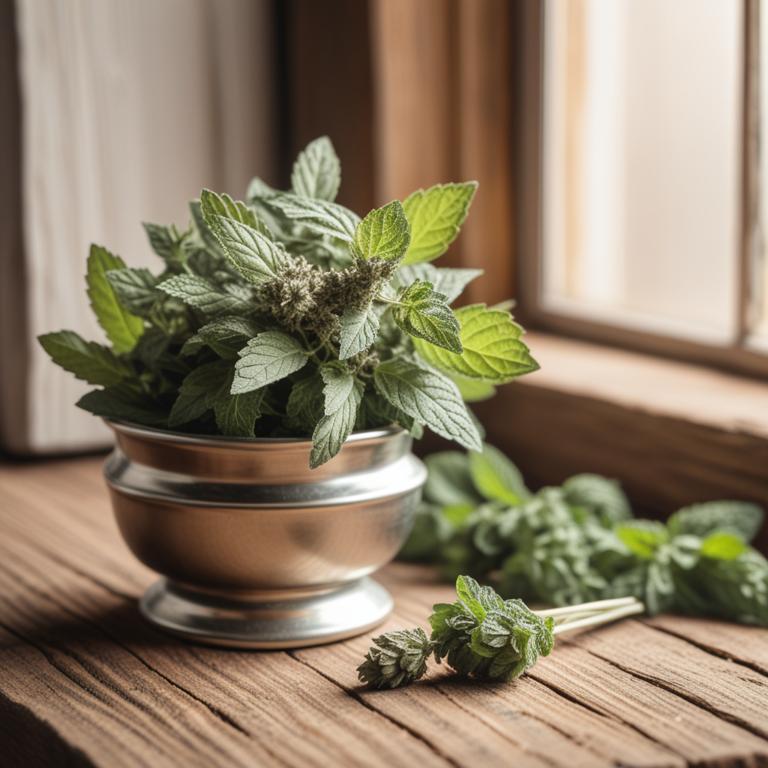
Throat Irritation Relief: Natural Causes and Effective Medicinal Herbs

The Dry Nose Dilemma: Causes, Herbal Preparations, and More
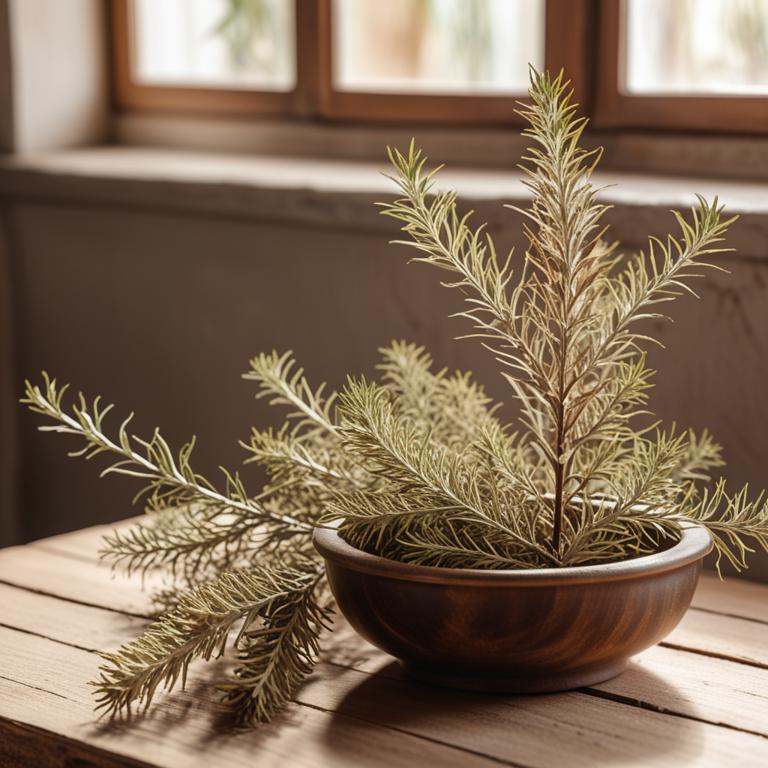
Ear Blockage: Exploring Medicinal Herbs and Natural Remedies
